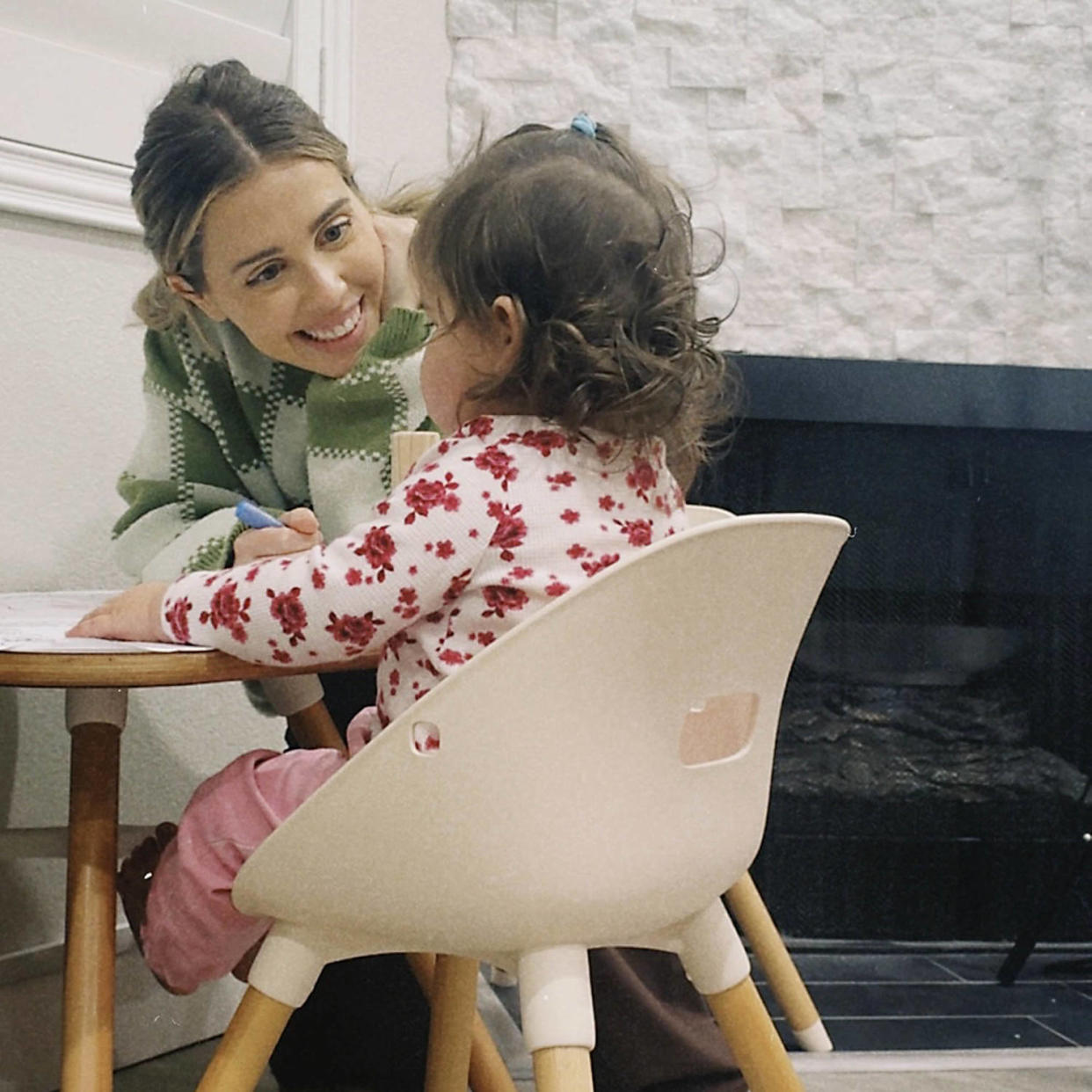These are the 9 minutes in your child's day when they need you the most
Guilt-ridden mom Sara Martinez breathed a sigh of relief when she read about The 9-Minute Theory. Then she shared it with her TikTok followers in hopes that they would find comfort in it, too.
Late neuroscientist Dr. Jaak Panksepp is widely credited for the theory which focuses on three key interactions each day to help a child to feel happier and more secure. Those moments include:
The first three minutes after they wake up.
The three minutes after they come home from school.
The last three minutes of the day before they go to bed.
When Martinez worked in an office, she felt guilty for sending her 19-month-old daughter, Millie June, to daycare. Now as content creator and stay-at-home mom, Martinez says she beats herself up trying to make each day magical for her toddler. There's just no winning.
“Each role comes with its own set of pressures and feelings of inadequacy,” Martinez tells TODAY.com. “I go to sleep thinking, ‘Did I do enough for her today?’ ‘Was I present enough?"
The 9-Minute Theory is helping Martinez overcome some of the unrealistic expectations she sets for herself as a parent.
“It’s less about the exact time (or counting minutes) and more about creating meaningful, focused interactions that make our children feel valued and loved,” Martinez explains.

“As a full-time working mama, I NEEDED this. I carry so much guilt not being there for my babies around the clock,” one person wrote on Martinez's TikTok video.
Added another, “This is kinda crazy because honestly all I remember from being that young are those three times of day!”
Dr. Tovah P. Klein, director of the Barnard College Center for Toddler Development and author of the upcoming “Raising Resilience,” says The 9-Minute Theory is essentially a code for remembering to connect genuinely with your child.
“Relationships aren’t built on the amount of time you spend with a person — relationships are built on being present when you’re present,” Klein tells TODAY.com.
Ultimately, it’s quality over quantity, though you should aim for more than nine minutes, according to Klein.
Klein says you can adapt the theory to fit your family’s schedule. For instance, if you’re not home when your child gets off the bus, you might leave them a snack and a note.
"Then when you see them, you have to be a listener because children want to vent. Your three minutes might just be nodding and taking in what they're telling you," Klein says. "What makes a child feel secure is knowing that you are there in the moments that they need you."
This article was originally published on TODAY.com
